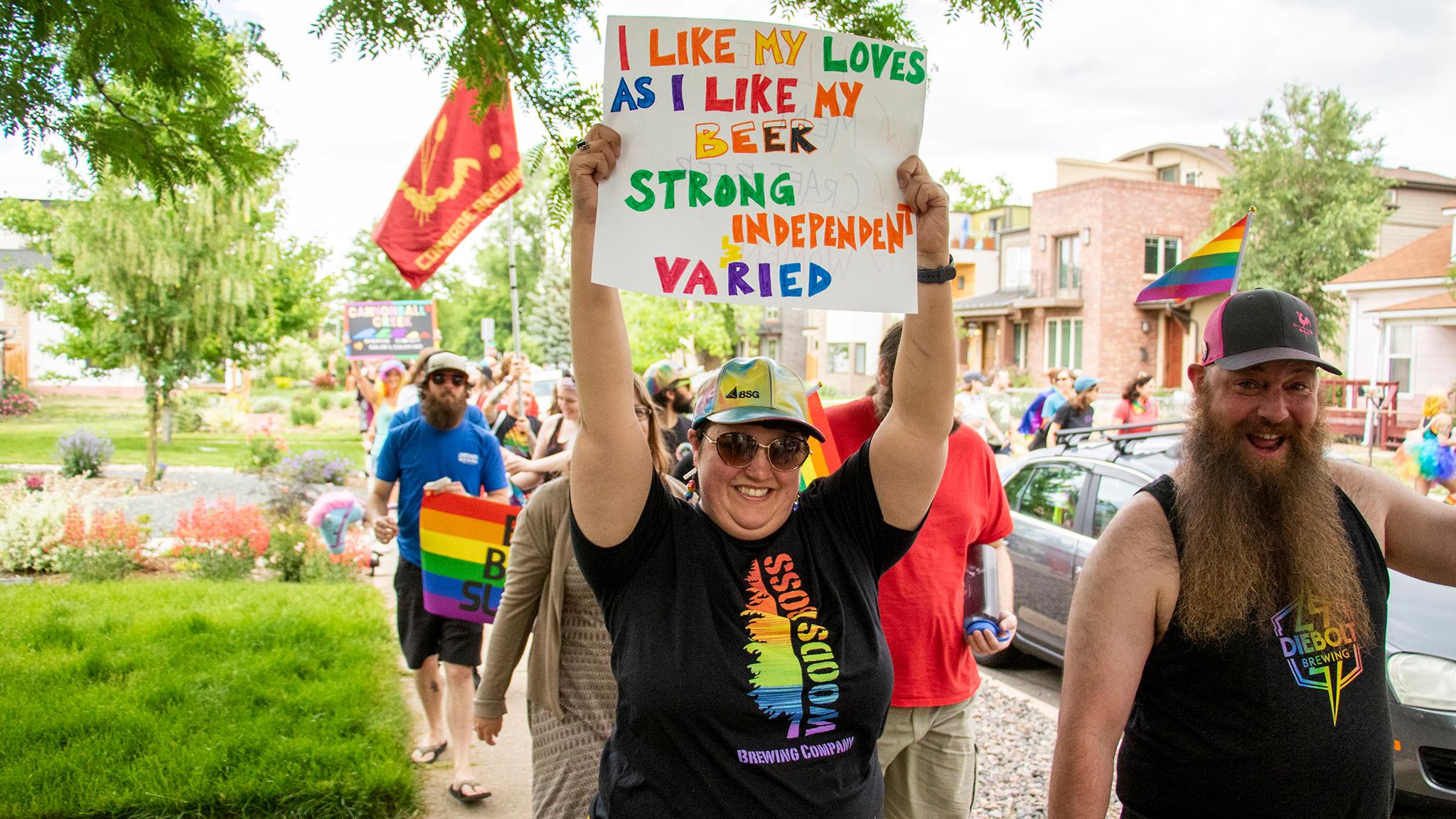In the weeks leading up to Denver's PrideFest, news broke that craft breweries would not be allowed to sponsor a float in the annual parade. The reason was the contract between the GLBT Community Center of Colorado, which organizes the event, and Coors Brewing Company, which has sponsored it for two decades. The brewing giant stipulated that they are the only company allowed to promote beer in the massive celebration.
People reacted to the matter, and it became controversial online. But Call To Arms Brewing co-owner Chris Bell, who helped organize a private parade a day prior, said it wasn't such a big deal.
Even so, the impasse raises questions about Pride as a whole: has the event, which began as activism, been co-opted by corporate interests?
Debra Pollock began working for the Center 16 years ago. She's the group's executive director, and back then she was responsible for courting businesses to sponsor the event. Coors was already a major backer before she got the job, but many companies then did not see PrideFest as a worthy investment.
"Most people would not return a call or hang up on me," she remembered. Worse, she said, "We had someone who would call every day with death threats, we had people shoot out our windows."
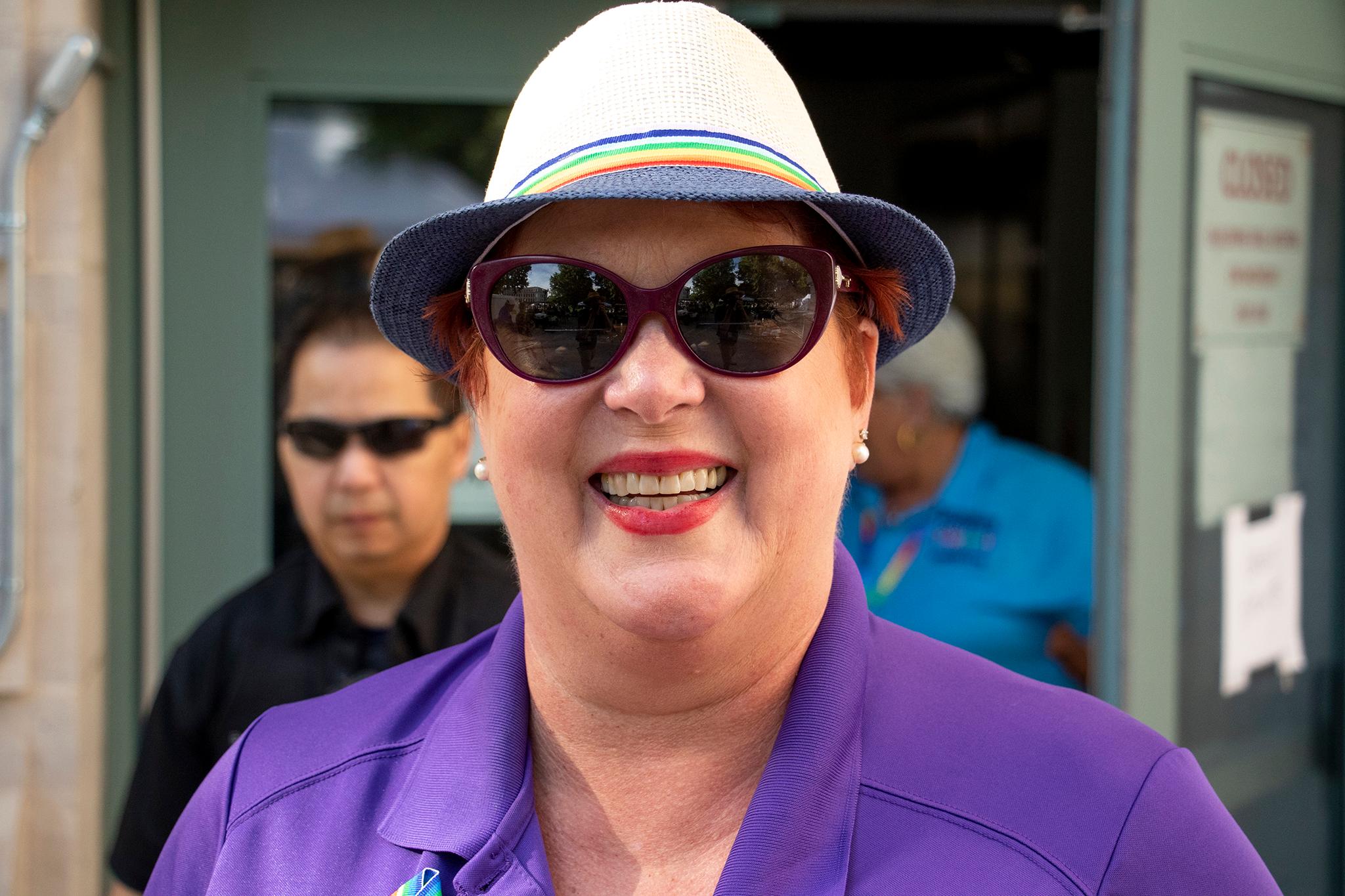
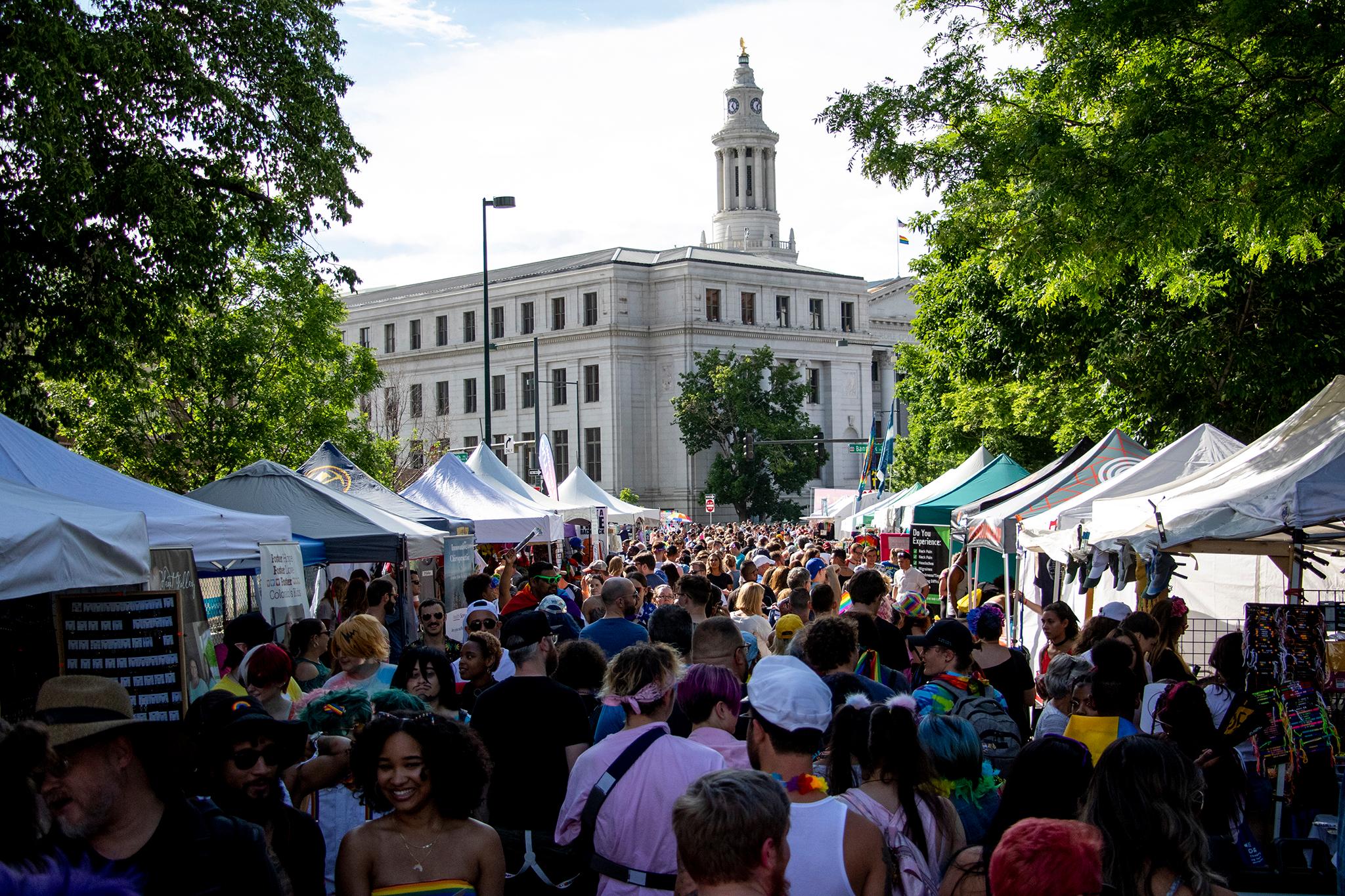
At the time, LGBTQ activists like those at the Center were beginning to organize around marriage equality. The U.S. Supreme Court finally ruled in favor of their efforts in 2015.
Clearly, times have changed as access to support Denver's event has become the issue.
Call To Arms' Bell said the reaction on social media became heated, and a lot of nasty comments were removed.
"It just turned into this whole Coors versus the small guy thing," he said, but he emphasized that his crew and folks who work at Coors are friendly.
Coors, Pollock said, is a company that walks the talk.
She said the brewery was one of the first businesses in Colorado to offer benefits for domestic partners, and they've been on the forefront of progressive human resource policies that have earned them respect from local advocates.
Rex Fuller, a spokesperson for the Center who now handles corporate giving, said "rainbow capitalism" is certainly something people are wary of. Those concerned don't want unsupportive companies profiting off of the community.
"It's a complicated issue," he said.
But generally, he doesn't see it as a problem. No matter sponsors' motivations, all of the money flowing into PrideFest supports the Center's programming, which spans from education and community support to a legal fund. The cash generated from their annual celebration has grown substantially since Pollock started making calls in 2003.
This year, PrideFest boasted 41 corporate sponsors and almost 250 exhibitors at Civic Center Park.
Pollock said the rush to support the event is a good sign.
"I came out in San Fransisco in 1980," she said. Back then, "You had to be careful. Pride was the one day of the year you got to be yourself and let your guard down."
While she had trouble finding support when she started with the Center 16 years ago, she's been "blown away" that most stores at the Cherry Creek Mall now sport some kind of Pride display.
"So I see all of this corporate support, especially in this political climate, as a really positive thing," she said. "There are a lot of corporations now who want to attract and retain LBG talent, and they're interested. They realize that these are really highly educated and unique people and that when you can bring your whole self to work you are able to do your job better."
To her, corporate support isn't just about the money. It's a sign that the people she's fought for have security in their lives outside of Pride.
Marjorie Scott, the Call To Arms Brewing employee who initiated the craft brewers' effort to participate, agreed.
"I'm personally queer, and it's essential to me to have support at work and throughout my life," she said. "I'm very lucky that in Denver, and specifically in craft beer, there's such an amazing support system."
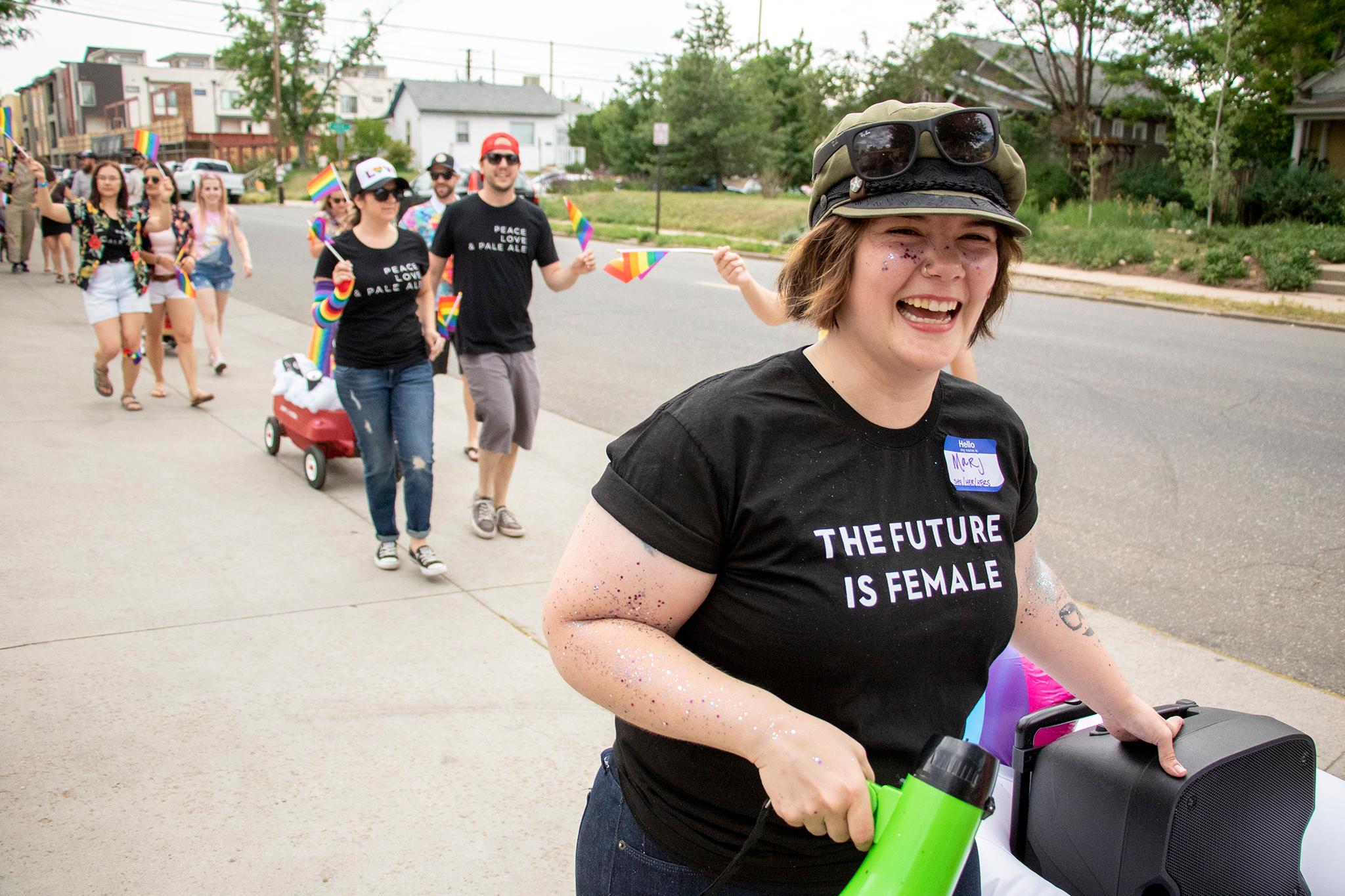
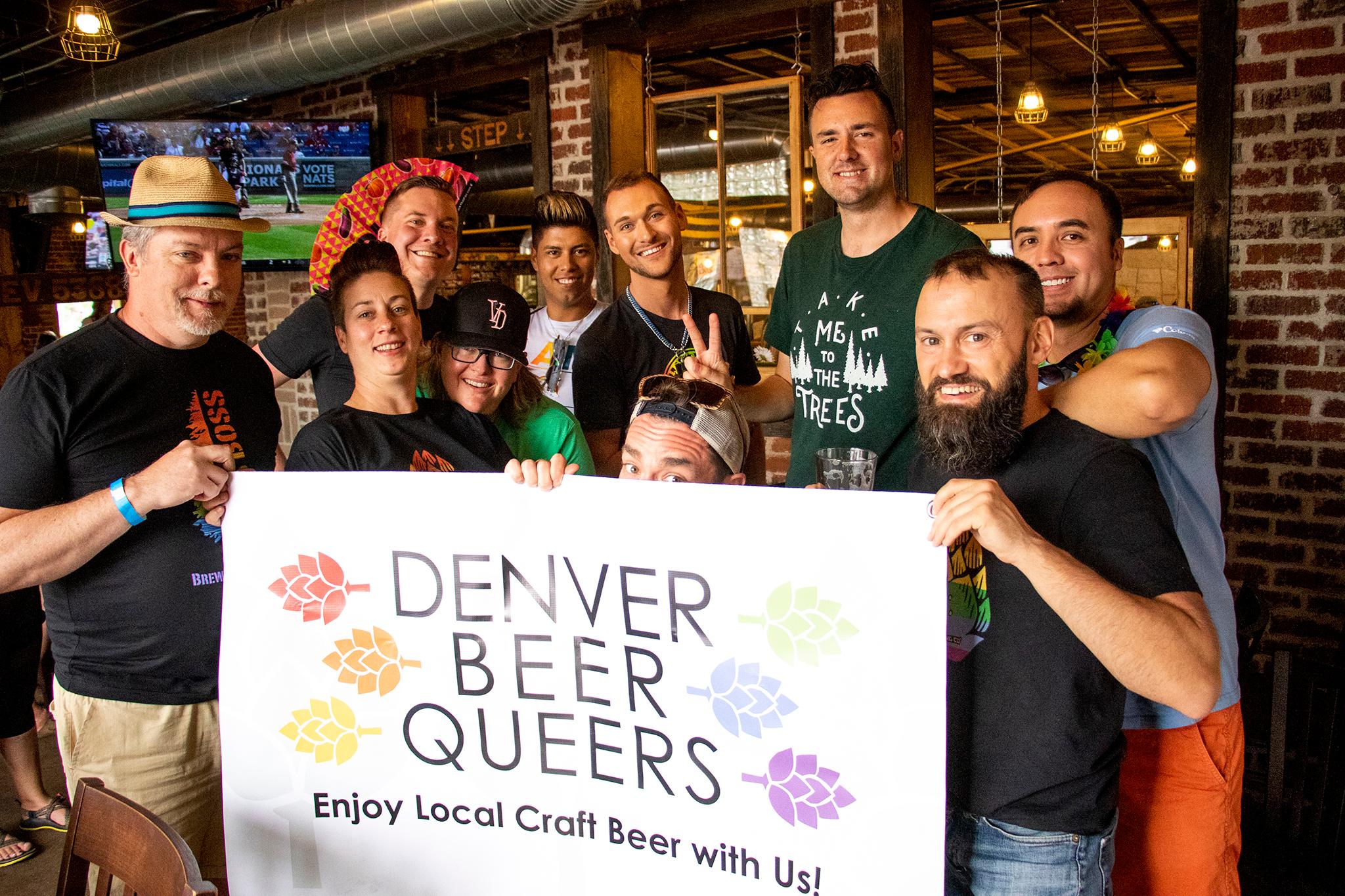
Call To Arms held their own parade on Saturday along with other craft breweries. More than a hundred people showed up to march in the event.
"We were like, alright, we can't participate," Bell said. "What do we do to raise awareness and show that we're welcoming and bring in some dough? So we decided to do it ourselves."
One was Michael Pare, a co-founder of the meet-up group Denver Beer Queers, who said he would also attend Sunday's main parade.
"Coors is what it is, they do great things, and I'll support that as well," he said. He mentioned one reason he founded the group was to show that the queer community likes craft beer just like everyone else.
"We're doing our own thing," Pare said. "Maybe it will change in a few years, but a situation that could have potentially been used for negativity was not, and I think the response was great."
The question of corporate dominance over the annual celebration is something he's thought about.
"I worry about it a bit. But at the same time, I'm thinking, it's better than the alternative," he said. "It's like a double edged sword."
It possible that companies supporting the parade don't actually "put their money where their mouth is," but he'd worry more if he hadn't looked into some of their corporate practices.
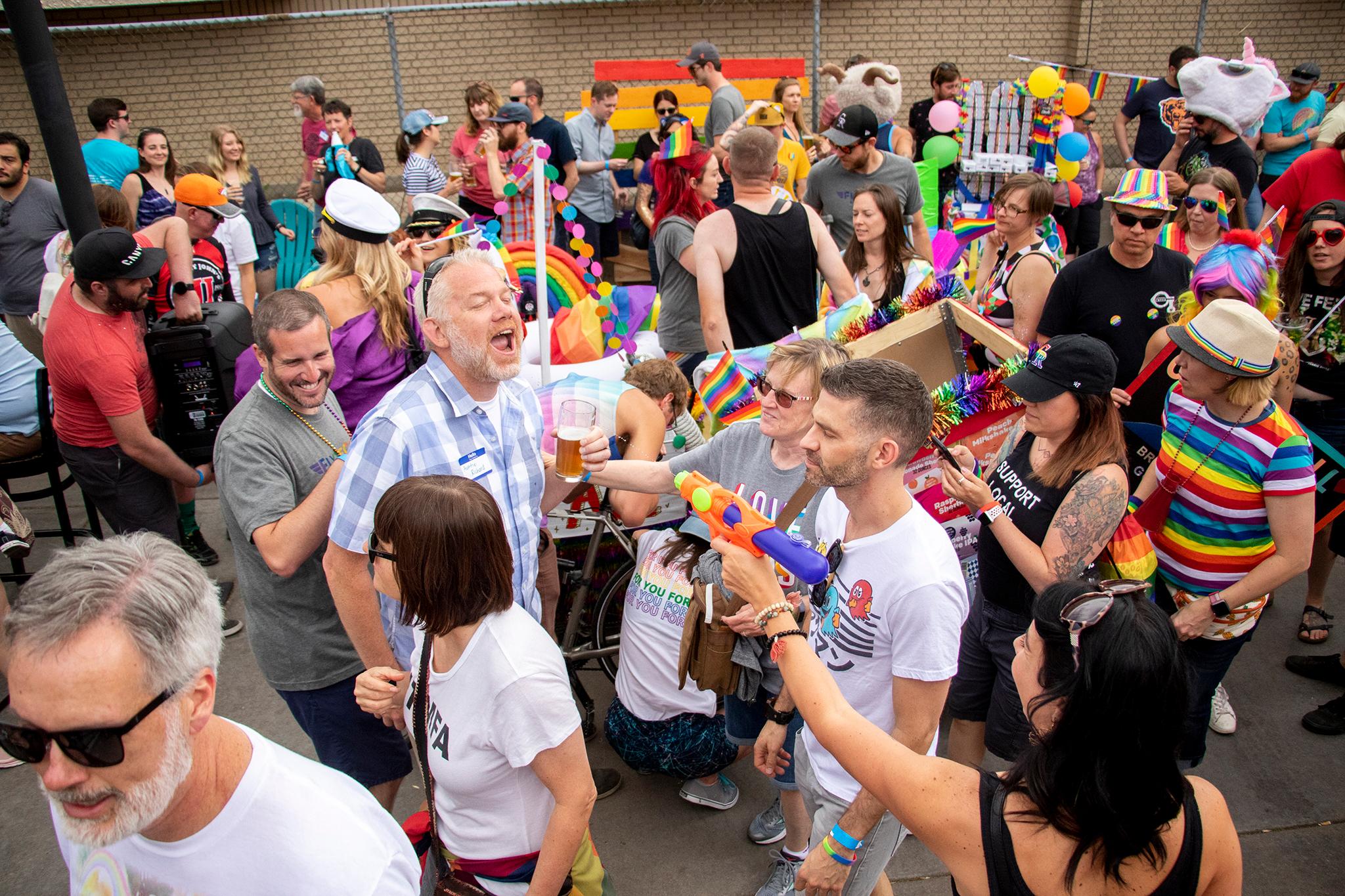
Bell said it all worked out for his business, too.
"We're probably going to raise 10 to 15 times the amount of money that we would have if we just bought a float," he said.
Proceeds from this weekend's beer sales will go to the Trevor Project, a mental health hotline for queer youth. Bell said Call to Arms will exceed their annual charity budget with just their private PrideFest alone.
Still, some people thought participating in the main parade should be as open as the event itself.
"If anybody wants to show support, they definitely should be allowed to," said Nick Perez, who commented Saturday on the craft beer issue from the Civic Center lawn. "Because that's pretty much what this is all about, being open."

